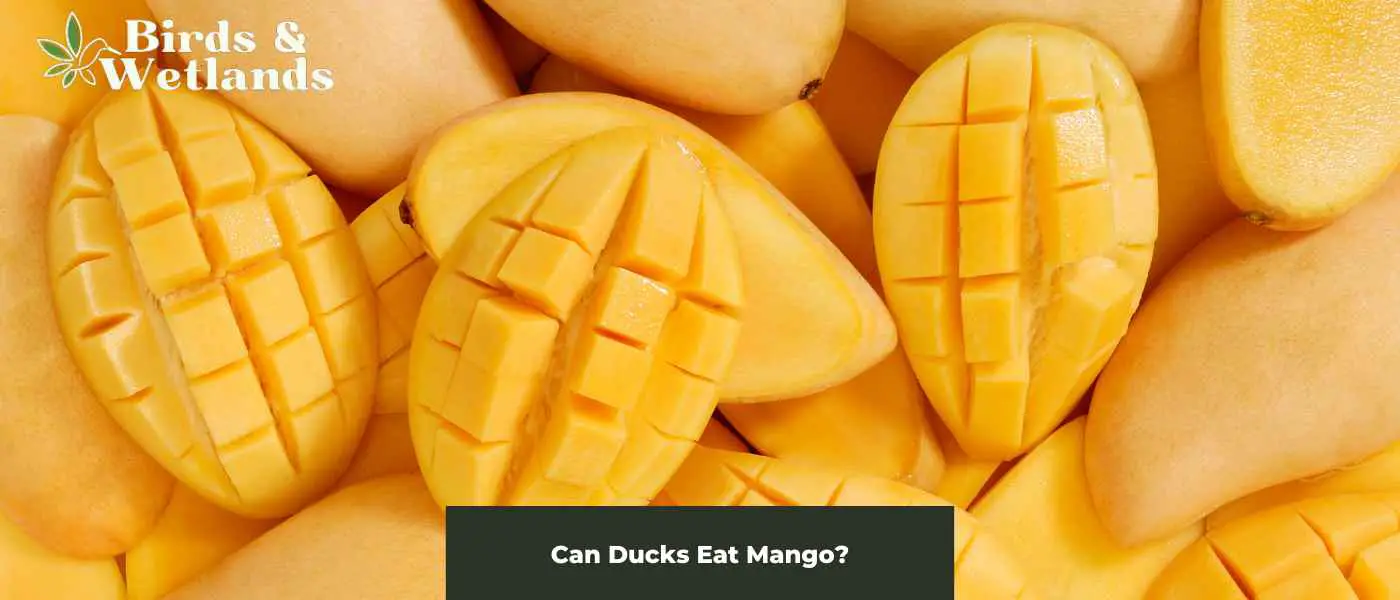Mango is a delicious tropical fruit enjoyed by many, but as a duck owner, you may be wondering whether it’s safe to feed this fruit to your feathered friends. While ducks have a varied and omnivorous diet, it’s important to be aware of any potential risks or concerns when offering new foods.
We’ll take a closer look at whether mango is a healthy and nutritious addition to a duck’s diet, as well as explore any potential risks or concerns associated with feeding mango to ducks.
Can Ducks eat mango?
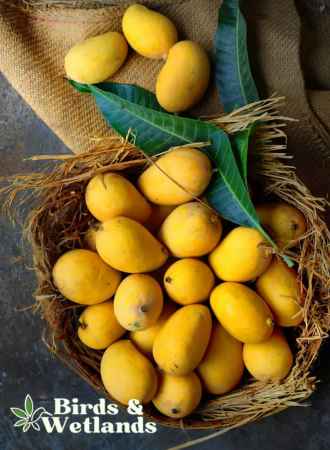
Yes, ducks can eat mango as an occasional treat. Mango is a good source of vitamins and minerals, making it a nutritious snack for ducks. Ensure that the mango is ripe, remove the skin and pit, and cut it into small, manageable pieces to prevent choking.
Key Takeaways on Feeding Ducks Mangoes
- Ducks love fruits and vegetables, and mango is a great addition to their diet.
- Mango contains important nutrients that help keep ducks healthy and happy. So if you’re looking for a tasty new snack for your ducks, be sure to give them some fresh mangoes.
- Ducklings and geese can eat mango, too. But these fruits should only be given in moderation.
What Are the Benefits of Adding Mangos to Your Duck’s Diet?
If you’re a duck owner, then you know that it’s important to provide your ducks with a healthy diet. Did you know that mangos can be a great addition to their diet? Mangos are packed with nutrients that can help improve your duck’s health.
Here are the benefits of adding mangos to your duck’s diet.
Better Immunity
Mangos are often thought of as a tropical treat, but did you know that they can also be good for ducks? That’s because mangos are a great source of vitamin C, which is essential for a healthy immune system. vitamin C helps the body to produce antibodies, which fight off infection.
It also helps to promote the production of healthy blood vessels and helps wounds to heal more quickly. In addition, mangoes contain antioxidants, which helps to protect cells from damage.
Healthy Heart
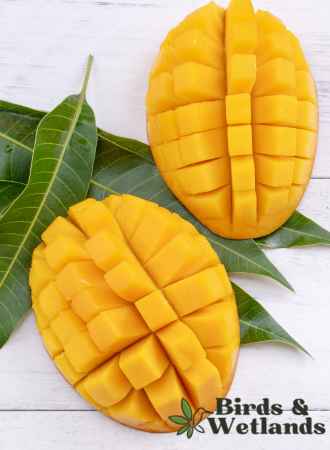
Mangos are a delicious and nutritious fruit that can have benefits for both humans and wild ducks. One of the ways in which mangos can help the duck’s heart is by providing magnesium.
This mineral is essential for proper muscle function, and it helps to relax the blood vessels, which can lower blood pressure and promote a regular pulse.
Mangos are also a good source of potassium, another electrolyte that is crucial for proper heart function. Potassium helps to control the electrical activity of the heart and ensures that it beats at a regular rhythm. In addition, this mineral helps to regulate blood pressure and fluid levels in the body.
Aids in Proper Digestion
Mangos are a good source of fiber, which is important for the duck’s digestive system. The fiber helps to add bulk to the stools, making them softer and easier to pass.
In addition, fiber helps to keep the duck’s intestines healthy and free from infection. Mangos also contain amylase, an enzyme that helps to break down carbohydrates.
| Water | 73% |
| Carbohydrates | 25% |
| Protein | 1.4% |
| Fat | 0.6% |
| Calcium | 18.2 mg |
| Potassium | 277 mg |
| Phosphorus | 23.1 mg |
| Magnesium | 16.5 mg |
| Sodium | 1.6 mg |
| Choline | 12.5 mg |
| Niacin | 1.1 mg |
| Vitamin E | 1.5 mg |
Can Baby Ducks Eat Mango?
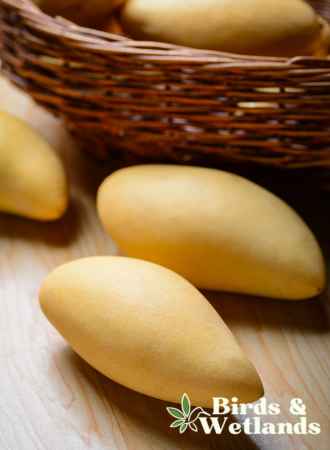
Mangos offer various beneficial nutrients that ducklings need a source of protein to help them grow and develop properly. But you should supplement the diet of your growing ducks with niacin by adding Brewer’s yeast.
While ducklings can eat mango, it should only be given as a treat in moderation. The sugars in mango can lead to health problems if ducklings eat too much of it.
In addition, ducklings need a well-rounded diet to ensure proper growth and development. As such, mango should only be given as an occasional tasty treat, not as a regular part of a duckling’s diet.
Similar Foods for Ducks
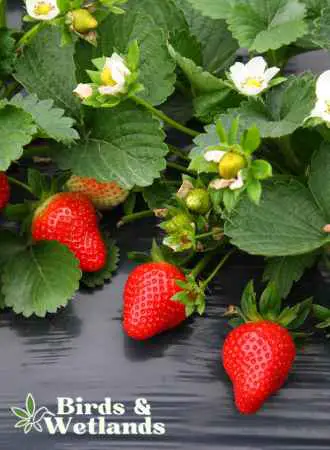
Best Duck Feed Pellets
Are you a duck owner looking for the perfect feed to keep your feathered friends happy and healthy? Look no further than Purina Duck Feed Pellets! With their nutritionally balanced formula and high-quality ingredients, these pellets are the ultimate solution for providing your ducks with the nutrition they need to thrive.
Pros
- Complete Nutrition: Purina Duck Feed Pellets are nutritionally balanced to provide all the essential vitamins and minerals that ducks need to stay healthy and strong.
- Easy to Digest: The pellets are specially formulated to be easy to digest, which makes them ideal for ducks of all ages.
- Promotes Growth and Development: With its balanced nutrition formula, Purina Duck Feed Pellets are designed to support healthy growth and development in ducks.
- Suitable for All Breeds: Whether you have domestic ducks or wild ducks, Purina Duck Feed Pellets are suitable for all breeds of ducks.
- Trusted Quality: Purina has been producing high-quality animal feed for over 100 years, so you can trust that your ducks are getting the best possible nutrition with Purina Duck Feed Pellets.
Cons
- Cost: Compared to other types of duck feed on the market, Purina Duck Feed Pellets can be slightly more expensive. However, many customers feel that the high-quality ingredients and balanced nutrition formula are worth the extra investment.
- Pellet Size: Some customers have noted that the pellet size of Purina Duck Feed Pellets can be quite large, which may not be suitable for smaller or younger ducks. However, many customers have reported that the pellets can easily be broken up or soaked in water to make them easier to eat.

